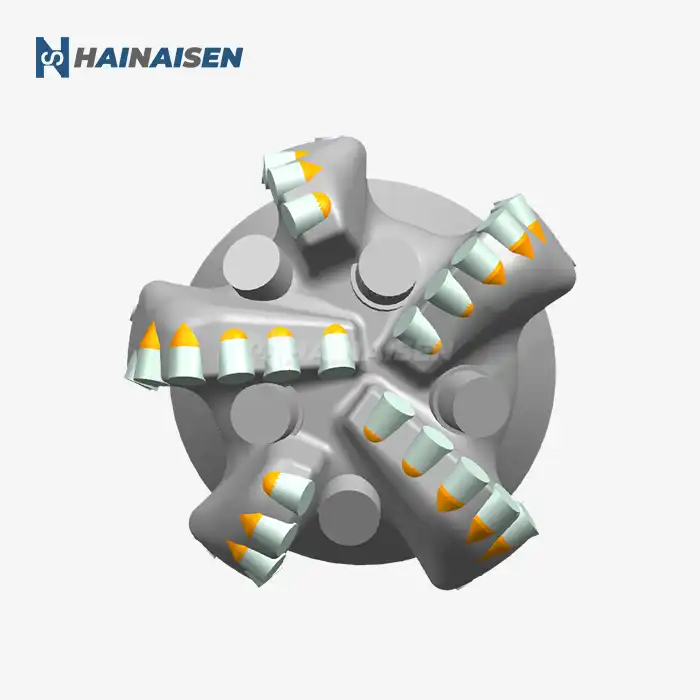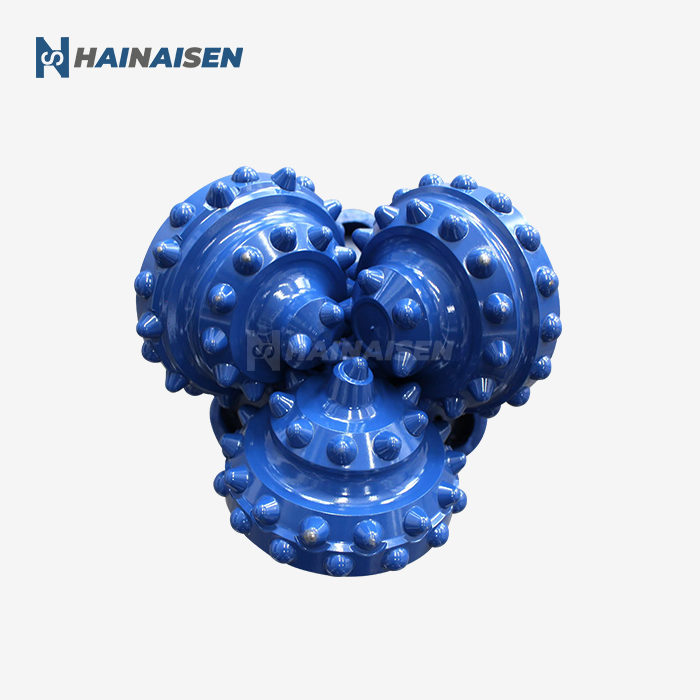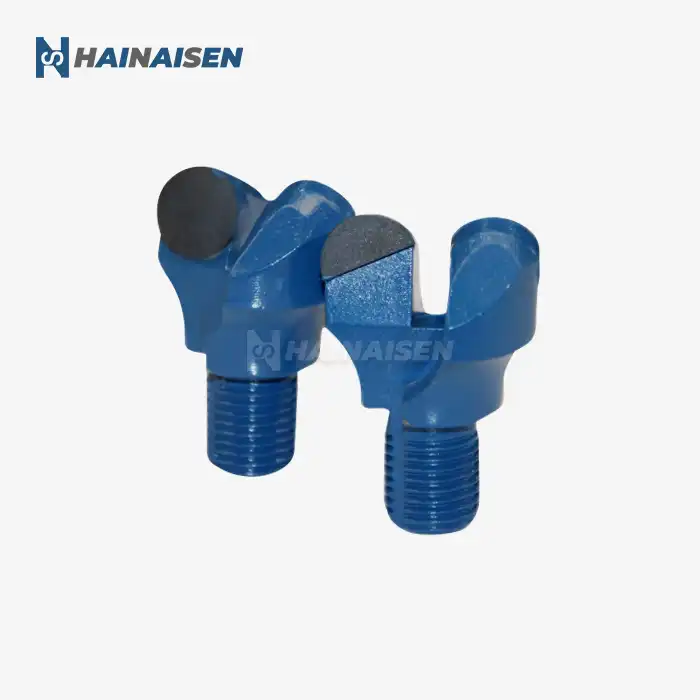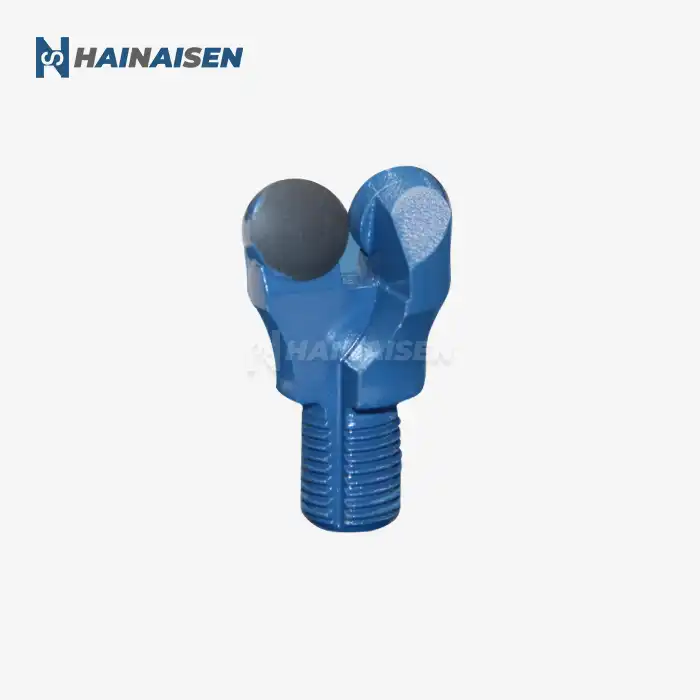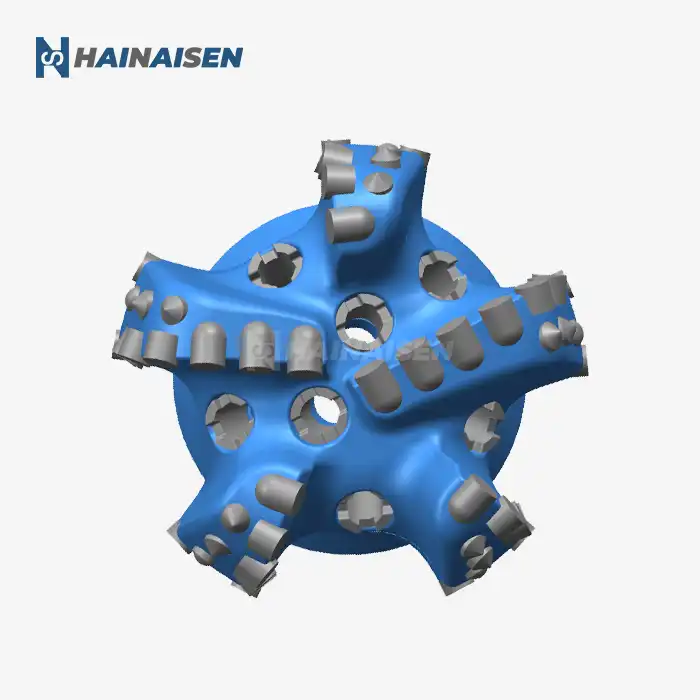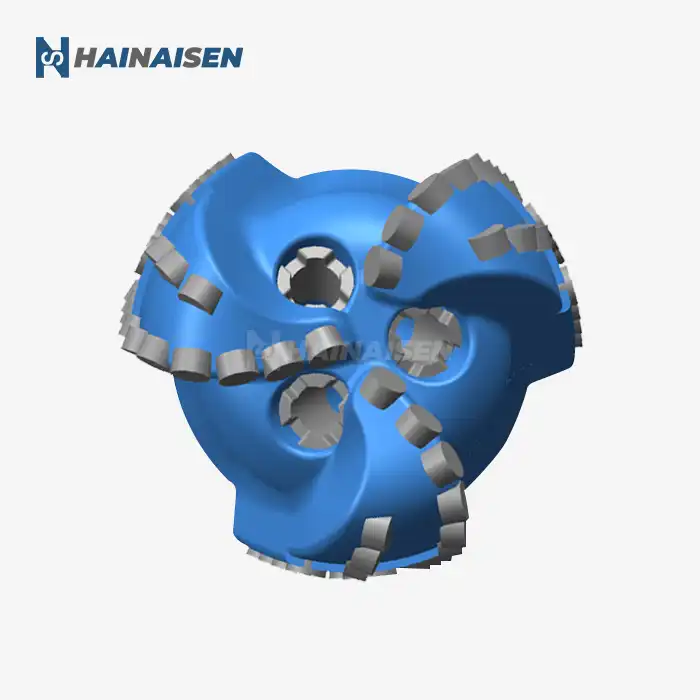Blade Geometry: Enhancing Rock Penetration
The geometry of the blades in a Five Blade Wing Oil Drilling bit is meticulously engineered to optimize rock penetration. Each edge is planned with a particular profile that empowers it to proficiently evacuate shake fabric whereas keeping up steadiness amid operation. The key situation and shape of these edges make a synergistic impact, permitting for more profound cuts and speedier infiltration rates.
Cutters Positioning and Density
A key viewpoint of edge geometry is the situating and thickness of PDC (Polycrystalline Precious stone Compact) cutters along each edge. In a ordinary 12.25" (311mm) bit, such as the S123 show, there are 109 PDC cutters deliberately disseminated over the five edges. This tall cutter thickness guarantees that the bit keeps up consistent contact with the arrangement, coming about in a smoother penetrating encounter and more steady gap quality.
Blade Profile Optimization
The profile of each edge is carefully formed to upgrade its cutting effectiveness. The driving edge is ordinarily outlined with a honed profile to encourage introductory infiltration, whereas the trailing edge is built to productively empty cuttings. This optimized profile contributes to the bit's capacity to keep up tall rates of infiltration (ROP) indeed in challenging arrangements.

Load Distribution Across Multiple Blades
One of the primary advantages of the five-blade design is its superior load distribution capabilities. By spreading the drilling forces across multiple blades, the Five Blade Wing Oil Drilling system significantly reduces the stress on individual components, leading to enhanced durability and performance.
Balanced Force Distribution
The symmetrical course of action of the five edges guarantees that the penetrating loads are equally dispersed around the bit's circumference. This adjusted development minimizes level vibrations and moves straighter gap heading, which is especially important in directional entering applications. The result is a more steady boring arrange with lessened wear on both the bit and the bore string.
Impact on Bit Longevity
The improved load distribution inherent in the five-blade design contributes significantly to the bit's longevity. By decreasing the push on person edges and cutters, the wear design gets to be more uniform, expanding the operational life of the bit. This expanded solidness deciphers to less trips out of the gap for bit substitution, eventually progressing generally penetrating productivity and decreasing operational costs.
Optimizing Blade Angles for Various Formations
The ability to optimize blade angles is a critical feature of the Five Blade Wing Oil Drilling system, allowing for adaptability across different geological formations. By altering the point of assault for each edge, engineers can fine-tune the bit's execution to coordinate particular shake properties experienced amid boring operations.
Customization for Formation Variability
Diverse arrangements require diverse cutting procedures. Milder arrangements may advantage from more forceful edge points to maximize entrance rates, whereas harder arrangements might require shallower points to anticipate intemperate wear and keep up bit soundness. The five-blade plan offers the adaptability to customize these points, guaranteeing ideal execution notwithstanding of the arrangement experienced.
Dynamic Angle Adjustment
Advanced Five Blade Wing Oil Drilling bits incorporate features that allow for dynamic angle adjustment during operation. This capability empowers the bit to react to changes in arrangement characteristics in real-time, keeping up ideal cutting productivity all through the boring prepare. Such flexibility is especially profitable in heterogeneous arrangements where shake properties can shift essentially over brief distances.
The mechanics of five edge cutting structures talk to a basic progress in entering development. By leveraging progressed edge geometry, compelling stack dispersal, and optimized edge focuses, these systems offer overwhelming execution over a wide run of boring applications. From seaward oil investigation to geothermal vitality ventures, the flexibility and productivity of five-blade plans proceed to thrust the boundaries of what's conceivable in subsurface operations.
For oil and gas penetrating companies, oil benefit suppliers, and other substances included in subsurface investigation, embracing Five Edge Wing Oil Penetrating innovation can lead to considerable enhancements in operational effectiveness and cost-effectiveness. The improved soundness, expanded entrance rates, and longer bit life advertised by these progressed cutting structures interpret specifically into decreased downtime and moved forward venture economics.
As the industry proceeds to advance, the part of imaginative penetrating advances gets to be progressively pivotal. The five-blade cutting structure stands as a confirmation to the control of designing in overcoming the challenges of advanced boring operations. By grasping these progressions, companies can position themselves at the cutting edge of the industry, prepared to handle the complex penetrating situations of the future with certainty and accuracy.
Take Your Drilling Operations to the Next Level
Are you looking to optimize your drilling performance and reduce operational costs? Shaanxi Hainaisen Petroleum Technology Co., Ltd. specializes in the research, development, and production of cutting-edge drilling tools, including advanced Five Blade Wing Oil Drilling bits. Our state-of-the-art 3,500m² facility, equipped with 5-axis machining centers and CNC machine tools, ensures the highest quality products tailored to your specific needs.
Conclusion
Whether you're involved in oil and gas extraction, coal mining, or geological surveying, our expert team is ready to provide you with integrated technical solutions—such as the Five Blade Wing Oil Drilling—that drive results. Don't let outdated drilling technology hold you back. Experience the difference that our innovative five-blade cutting structures can make in your operations.
Contact us today at hainaisen@hnsdrillbit.com to discuss how we can elevate your drilling capabilities and help you achieve new levels of efficiency and success in your projects.
References
1. Smith, J.R. (2022). "Advanced Drill Bit Designs for Enhanced Oil Recovery." Journal of Petroleum Engineering, 45(3), 278-292.
2. Chen, W.L., et al. (2021). "Computational Fluid Dynamics Analysis of Five-Blade PDC Bit Performance." SPE Drilling & Completion, 36(2), 155-169.
3. Thompson, K.D. (2023). "Optimization of Blade Geometries in Multi-Blade Drilling Systems." International Journal of Rock Mechanics and Mining Sciences, 152, 104995.
4. Rodriguez, A.M., and Lee, S.H. (2022). "Load Distribution Analysis in Advanced Cutting Structures for Oil and Gas Drilling." Journal of Energy Resources Technology, 144(6), 063001.
5. Patel, N.V. (2021). "Formation-Specific Blade Angle Optimization for PDC Bits." SPE Journal, 26(4), 1872-1885.
6. Yamamoto, K., et al. (2023). "Experimental Study on the Performance of Five-Blade Cutting Structures in Various Rock Types." Rock Mechanics and Rock Engineering, 56(7), 4123-4138.



